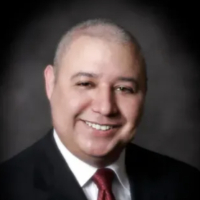Gary RICO Act Lawyer, Indiana
Sponsored Law Firm
-
 x
x

Click For More Info:
-
The Law Offices of Richard L. Cooper, P.A.
848 Brickell Avenue Suite 800 Miami, FL 33131» view mapDWI/DUI, Drug Trafficking, Felony Nationally Ranked Top 40 Under 40
With Richard L. Cooper you can expect a trusted confidant who will work diligently to fully understand your case and determine a road map to help you regain control of your life.
800-756-2781
Not enough matches for Gary RICO Act lawyer.
Below are all Gary Criminal lawyers.
Alejandro Dominguez
✓ VERIFIEDI am Alex Dominguez and I provide the highest quality, cost-efficient legal representation possible. I am an experienced trial lawyer representing cli... (more)
Edward John Wartman
✓ VERIFIEDEd was born and raised in Calumet City, Illinois graduating from Quigley South High School in Chicago in 1988. He graduated from Northwestern Univers... (more)
Andrew Phillip Martin
✓ VERIFIEDAndrew Martin was born in Chicago, Illinois and lived in the Chicago suburbs his entire life. Mr. Martin lived in Schaumburg, Naperville and Plainfiel... (more)
Aaron L. Robbins
✓ VERIFIEDAt Robbins and Seville, LLC, we specialize in providing 21st-century solutions to our clients' legal challenges. This includes utilizing cutting-edge... (more)
Paul Stracci
✓ VERIFIEDPaul Stracci is a uniquely experienced criminal trial attorney who has had remarkable success in the courtroom. He successfully defended his first mu... (more)
Stephen Charles Bower
Samuel George Vazanellis
Andrew M. Yoder
FREE CONSULTATION
CONTACT
 Richard L. Cooper Miami, FL
Richard L. Cooper Miami, FL AboutMiami Attorney at Law
AboutMiami Attorney at Law ServicesCriminal Defense
ServicesCriminal Defense





